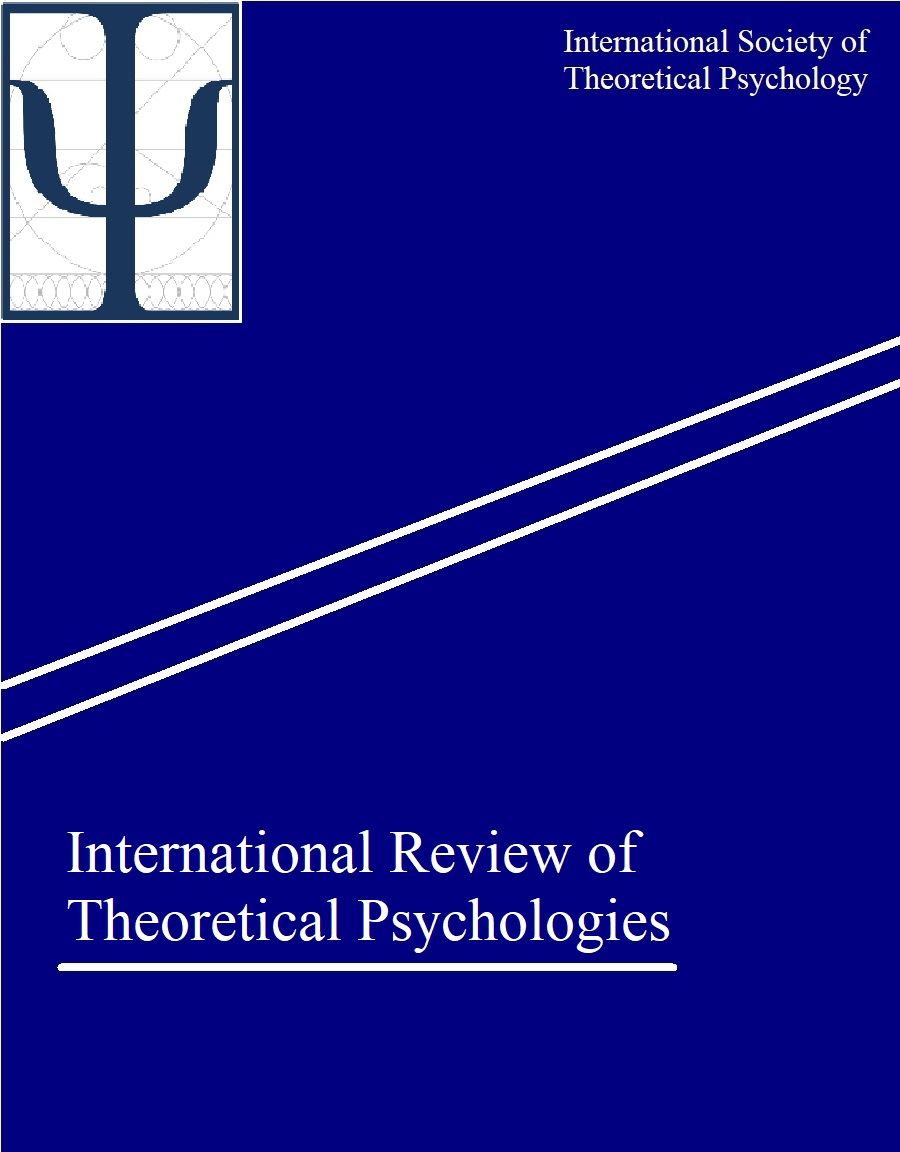 We bid you a warm welcome to our new open access online journal: International Review of Theoretical Psychologies (IRTP). The IRTP publishes articles originally presented at the latest conference of the International Society for Theoretical Psychology (ISTP), in rewritten, peer-reviewed, and revised forms for a global readership. Since 1987, such articles were printed as proceedings volumes.
We bid you a warm welcome to our new open access online journal: International Review of Theoretical Psychologies (IRTP). The IRTP publishes articles originally presented at the latest conference of the International Society for Theoretical Psychology (ISTP), in rewritten, peer-reviewed, and revised forms for a global readership. Since 1987, such articles were printed as proceedings volumes.
With the IRTP, as an open access online journal, we hope to reach a wider and more diverse readership, while at the same time to uphold the highest academic aspirations, reflecting theoretical, meta-theoretical, historical and philosophical discussions of psychology in all its manifold and varieties. IRTP publishes one volume every two years of one or more issues. Each publication follows the previous conference, with peer-reviewed papers written by delegates on topics more or less closely connected to the conference theme, however always intellectually stimulating and of high academic and ethical standards. Deciding for an online version and Open Access, OJS—rather than for a printed proceedings book—has been a long and carefully debated process, involving the ISTP Executive Committee, the conference organizing team, and the editorial team of this first issue. Debating pros and cons between good old books and an OJS—tradition and renewal—we decided on the latter. This solution has many advantages. It is free of charge and easily accessible to a worldwide readership. It is also environmentally a much more sustainable solution, as we avoid print and overseas shipping of books. IRTP offers immediate open access to its content, thus contributing to making research freely available to a wider academic readership. This favors not only the ISTP as a community but also the interrelationships with many other communities and researchers all over the world. Thus, we hope that this new journal increases our impact through widened readership and a global exchange of knowledge—and we are happy to reduce our carbon footprint at the same time. This first volume of the International Review of Theoretical Psychologies (divided into Issues 1 and 2), share the subtitle: “Measured Lives - Theoretical Psychology in an Era of Acceleration”, pointing back at the Copenhagen 2019 theme. We decided upon this topic for the 18th biennial conference at the Danish School of Education, Aarhus University in 2018. At that time, the world was on full speed moving in all kinds of directions, but particularly moving fast in terms of technologies of measuring and monitoring. Our aim was to stimulate critical debate and reflection regarding these dominant forces in contemporary capitalist societies: the conception of humanity as something measurable and the constant quest for acceleration, efficiency, and optimization. We thus open a call to contribute theorizing the psychological implications of the acceleration and measurement of life and experience. Who would have believed that a global pandemic, COVID-19, should interfere with this fast-moving accelerated world with such a sudden and in itself accelerated force? Whole industries—which prior to this crisis were regarded as unstoppable economic and cultural necessities—have come to a standstill (to paraphrase a keynote paper authored by Pablo Oyarzun, in issue 1). The consequences of this pandemic are unfathomable—manifold and complex—and still unfolding. In many places of the world it is tearing communities apart, causing grief, anxiety, vast unemployment, poverty, and a glooming and uncertain future. In almost every place of the world, it disrupts plans for a future, crushes dreams and alters our usual ways of working, socializing, commuting and our habits of doing so, prompting for new, “more hygienic” cultural practices. In any case, the pandemic has only proven the centrality of the topic of measuring and acceleration, relevant in even more pertinent ways; yet none we had foreseen. Measuring and calculating are tools of immense value and profound human consequence during the pandemic.
The accelerated race between pharmaceutical companies serve us well, and each break of a new chain of infection can save lives, and restrictions as well as their abolition rest upon mathematical calculations of risk and projected infection rates, compared up against hospital capacity, vaccination speed, etc. Yet, it is likely that the pandemic was itself largely caused by accelerated agricultural production and spread by intensified traffic; it is possible that the commercial structure of ‘big pharma’ obstructs disease control at a global level, and we are in more need than ever of a: “social epidemiology in alliance with the vulnerable and marginalized” to paraphrase a plea presented by keynote Uffe Juul Jensen (issue 2). So, measuring and accelerating continuously plays an enormous role in both, the suffering and the potential overcoming of our agony during this pandemic, as keynote Dorte Marie Søndergaard (issue 1) and keynote Ann Phoenix (issue 2) point out—these technologies are not neutral tools of application, but part of the thinking technologies that intra-act for better and for worse. As editors of these proceedings, we usually work in the happy anticipation of meeting soon in the ISTP community at the upcoming conference, continuing the dialogue in IRTP. This next conference should have taken place in Sacramento, California, USA (please, visit the ISTP website [https://istp.wildapricot.org/conferences] for next call and upcoming events).
Of course, this tradition of on-site conferences is unfortunately disrupted by the pandemic, and our next conference in 2022 is going to be an online event. Hopefully, our new open journal format enables us to learn how to keep growing into a truly global community despite the social changes we are currently experiencing. Meanwhile, the team spirit in the group of editors and cooperation with volunteer reviewers from all over the world has been a refreshing opening into the global world for us, at a time other-wise strictly confined to the local arena, in which we are trapped.
Creating a new journal is a huge job and a joint venture. We encourage readers to sign up for the publishing notification service for this journal, as a way of also visualizing your support and our readership among scholars of theoretical psychology. Please, do use theRegister link at the top of the home page for the journal.
We would like to thank the ISTP Executive Committee for engaged and fruitful discussions, and for the research and dialogue leading to this promising renewal of a long tradition; and finally, our heartfelt thanks to Mike Arfken for volunteering in creating a useful and aesthetically pleasing Journal template. We are grateful to editorial assistants, Rasmus Teilmann and Jakob Thøfner Qvortrup for speedy and competent work. And last but not least, a big thank you to all reviewers.
Ditte Winther-Lindqvist, Andrés Haye, Dorte Kousholt,
Kyoko Murakami, Morten Nissen & Ramiro Tau
International Review of Theoretical Psychologies - Editorial Board
 International Society for
International Society for